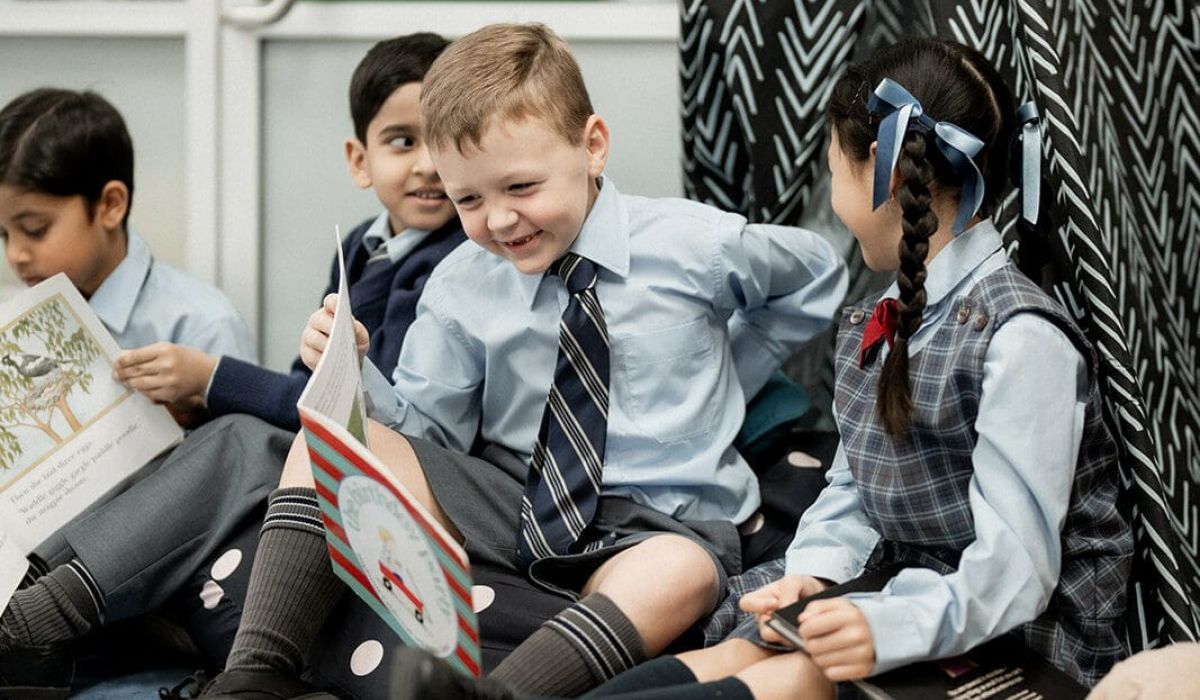Understanding and Managing Emotions and Anxiety: A Guide for Kindergarten Parents
Authored by Ms Geneva Clayton – Head of Junior School
Starting Kindergarten is an exciting milestone, but it can also bring about a range of emotions for both children and parents. At the Illawarra Grammar School, we are committed to supporting your family through this important transition. Understanding and managing emotions, including anxiety, is a key part of ensuring your child feels confident and ready to thrive.
The Zones of Regulation is a framework to help individuals, especially children, understand and manage their emotions, behaviours and sensory needs. It categorises feelings into four colour-coded zones:
- Blue Zone – Low energy or sad emotions like tiredness, boredom or illness.
- Green Zone – A calm, focused and ready-to-learn state.
- Yellow Zone – Heightened emotions like stress, excitement, or frustration, but still in control.
- Red Zone – Intense emotions like anger or panic, often leading to loss of control.
Here are some practical strategies to help your child navigate their feelings.
1. Recognise and validate emotions
Children often experience big feelings as they adjust to new environments and routines.
It is important to talk about feelings to help your child identify and name their emotions. Use phrases like:
- “It looks like you’re feeling nervous. Is that right?”
- “You seem really excited about school today!”
Feeling nervous and worried are normal emotions to feel. Let your child know that it’s okay to feel these. Share your own experiences with starting something new to show them they’re not alone. Reference something you have experienced i.e. “I was really nervous when I went to swimming lessons for the first time.”
2. Create a safe environment that has predictable routines
A stable environment can help children build their confidence. Establish routines that provide a sense of predictability and safety. Home routines are important, bedtime especially.
Learn new routines as the commencement of school approaches. You may like to use images or photographs to show clearly the steps in a daily sequence. For example, a daily overview that outlines the activities of the day is helpful in building familiarity the day before. We provide a Kindy book prior to commencement which will assist with this.
Before the school year begins, practise elements of the school day, such as packing their bag, putting on their uniform, or walking to their classroom.
3. Teach coping skills
Giving your child tools to manage their emotions helps them build resilience and confidence.
Encourage your child to express themselves. Positive self talk is an excellent strategy to introduce and practise. “I’m OK” or “I think I need some help” are good phrases to learn.
Simple breathing exercises help to alleviate stress and calm the body.
4. Practice separating from parents and caregivers
Allow for opportunities for your child to spend time away from you – perhaps with other family members or friends. Provide reassurance for your child that you will return, it is advised to you keep this interaction comforting and positive.
The Illawarra Grammar School is a welcoming and supportive community who have a number of experts available to support your child’s transition. Your child’s classroom teacher will be key in assisting you. Our school counsellors and support staff are also available to provide further support and guidance.
Starting Kindergarten is a big step for your child, and managing emotions is part of the journey. I hope you find the suggested strategies useful as your child prepares for the exciting journey ahead.


